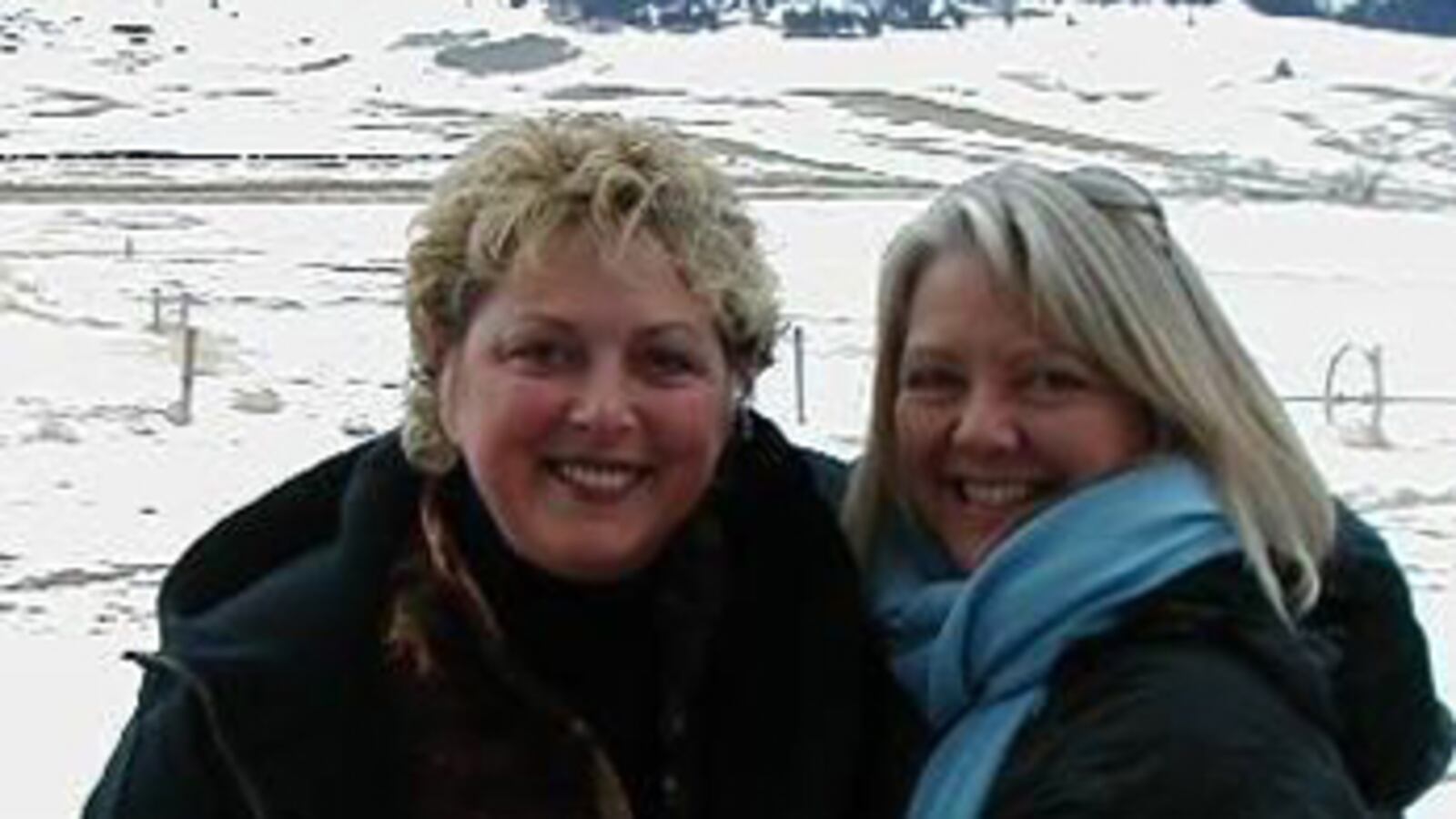
The first time I laid eyes on Jerri Nielsen she was hairless as a newborn kangaroo, draped in a flowing caftan, holding a glass of white wine, and laughing. She had an incredible laugh—something between a giggle and a guffaw.
“Greetings, earthling!” she said. “I look like an alien, don’t I?”
Jerri said the cancer had spread to her bones. She’d had a course of radiation and would be on chemo for the rest of her life. However long that might be.
I had been summoned to her beach house in North Carolina to interview for the job of collaborating with her on her memoirs. Six months earlier, in October 1999, Jerri had made headlines for being the object of a daring airlift rescue at the South Pole. She had been the only doctor at the Amundsen-Scott Research Station, charged with caring for the 40 other volunteers who stayed behind during the dark, brutal Antarctic winter. At the time, there was no way in or out of the Pole until spring. But when Jerri discovered a cancerous lump in her breast, her family in the States, her colleagues at the Pole, a medical team in Indiana, and the U.S. government mobilized to save her.
A rapt international audience soon learned that the doctor had performed her own biopsy without anesthesia, and the media documented every step of a dangerous midwinter airdrop of chemotherapy drugs and equipment, followed by the heroic “extraction”—the first-ever landing of a C-130 at the Pole in 60-below-zero temperatures—that swept Jerri off the ice for emergency treatment.
She was grateful to be rescued, but horrified by the attention. But because there was so much interest in her story of survival, she agreed to write a book about it—if only to get it right, and make sure the whole team got credit.
Jerri and I hit it off immediately and got to work. Her cancer treatments were almost over. The tumor had been successfully removed and there was no sign of disease. She was regaining her strength, and her hair started to come back—along with her memory, which had been fogged by illness and chemo. Again, with the help of her family, the devoted crew of “Polies,” and most of all her dear friend, Big John Penney, we were able to reconstruct the events of the her harrowing, glorious season on the Ice.
We were as close as sisters while we were writing the book. Jerri was brave and funny, the best of companions, and she had poetry in her soul. But after Ice Bound was published in 2001, Jerri and I went our separate ways, keeping touch in occasional emails and phone calls. I spent a couple of years collaborating with Hillary Clinton on her memoirs, then writing another book, Lone Wolf, about domestic terrorism and the bomber, Eric Rudolph. Jerri went back to being a fabulous ER physician, became a motivational speaker, and continued to travel the world, having more adventures.
I didn’t know the cancer had returned until I got an email from Jerri in July 2006.
We had been out of touch for a while, her phone numbers didn’t work anymore, and I was wondering if she was all right. I finally sent a message to an old mailbox.
“A lot has happened,” she wrote back. “I went blind in Turkey last summer.” As I read on, I desperately hoped that this was another of the Doc’s adventure tales, that she was about to deliver a punchline about drinking too much arak in Istanbul. But it was no joke, even though she tried to make light of it: “Fortunately I was with Jeannie (her best friend and traveling buddy) and I didn’t go totally blind so we laughed about it. Unfortunately it was a tumor in my orbit from breast cancer in my skull.” She said the cancer had spread to her bones. She’d had a course of radiation and would be on chemo for the rest of her life. However long that might be.
The email was classic Jerri—no complaints, just the facts. The cancer had forced her to give up the ER job that she adored, but not her travels. She and Jeannie were planning a trip to the Arctic Circle to follow some nomadic reindeer herders.
Oh, and by the way—she’d gotten married two weeks ago. The groom was Tommy FitzGerald, an old friend with whom she’d reconnected after the Pole. The ceremony took place on a mountain outside of Las Vegas where, she pointed out, it almost never rains. “…But the Heavens opened up on us. We even had lightning and thunder and a fire from the lightning. We were soaked…It was great.”
I never met Tommy, but she sent pictures. They were clearly in love and happy together. I was so pleased for her, and so terribly sad. But she wasn’t sad at all. She refused to let death define her life, or even inconvenience her, if she could help it. The Doc didn’t like describing her quest to live as a “battle” against cancer; to her it was more a process of acceptance. And she hated the notion that cancer patients are bullied into “positive thinking,” as if they were responsible for losing the “fight” against their disease if they acknowledged the tough odds against them. She had nothing against hope—she was full of hope—but she was a realist.
Jerri died at home in Southwick, Massachusetts, early in the morning of June 23, 2009. Tommy, his sister Kathleen, and Jerri's friend Jeannie were by her side. After I heard the news, I reread a passage from Ice Bound and I realized that as soon as she felt that hard lump in her breast in March 1999, she knew it would kill her some day. Six months later, Jerri was still stuck at the South Pole and, despite rounds of chemo, her tumor was growing rapidly. She was communicating by email with Kathy Miller, her doctor in Indianapolis, pressing her to give a prognosis. Dr. Miller finally told her that if the cancer hadn’t spread, and there was no proof that it had, there was a 35 to 40 percent chance she would be alive and well in 10 years.
Jerri looked at it another way: “(There was) a better than 60 percent chance that I would be dead in a decade,” she wrote. “Well, I could try to make that decade last a lifetime.”
That she did.
Maryanne Vollers is a writer and producer based in Livingston, Montana. Her first book, Ghosts of Mississippi, was nominated for the National Book Award in 1995. Ice Bound: A Doctor's Incredible Battle for Survival at the South Pole (2001), coauthored with Dr. Jerri Nielsen, was a New York Times No. 1 Bestseller.






